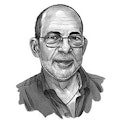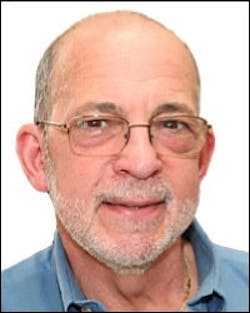If you’ve spent a lifetime thinking and writing about the future of this industry and our place in it, the notion of survival is omnipresent. And the lessons found in Darwin’s On the Origin of Species are hard to ignore, whether you subscribe to the theory of evolution or not.
And yet, as powerful and compelling as Darwin’s work may be, you have to wonder if it failed to take into consideration the very nature of man as perhaps the only creature on the planet capable of self awareness and critical thinking, the only organism for which free will and the notion of self selection may be a reality.
Meet Mitch Schneider
at the Ratchet+Wrench Management Conference
Register at rwconference.com
I think about things like this all the time and I am convinced our ability to act rather than just react alters the inevitability of Darwin’s conclusions, especially with regard to evolution, natural selection and our ability to survive. Nothing demonstrates this in a more compelling way than a thread that appeared on the Automotive Service Council of California’s (ASCCA) TeamTalk email forum the other day.
A little background: TeamTalk is a combination of a chat room and bulletin board reserved for members of the ASCCA, the largest association of independent repair shop owners in California.
The initial post swirled around a confrontation between a shop owner and a longtime client with service histories on four different vehicles. It started with an estimate the customer felt was too high—so high that the customer felt compelled to shop the job, which he did at two other shops in the area.
I know the shop owner responsible for the post. I know the shop. It’s down the street from our daughter’s home, and it’s where I send her for automotive service when she or the vehicle can’t make the 45-mile drive to me. It is without question a Tier 1 shop.
We could spend days discussing what prompted the estimate to be so high, the qualifications of the two other shops, etc. We can talk about whether the bureau or the club has the right to dictate price, or the right of an independent businessman to charge whatever he or she chooses. But, that is not what this is all about.
This is about a shop owner reaching out for help, looking for answers and seeking guidance concerning a situation many of us can relate to all too easily. It’s about unity and support. It’s about power and the value of affiliation. It’s about the growing number of ASCCA members from across California who stopped whatever they were doing to fill this thread with their concerns, support, experiences, wisdom, advice and encouragement within minutes after the post first appeared. It is about the most compelling argument for affiliation I’ve witnessed in years, an argument that goes to the very heart of our survival.
Affiliation of any kind has become a real problem in our society. Membership in fraternal orders, charitable organizations and community groups continues to decline. Robert Putnam, in Bowling Alone, discusses this phenomenon in frightening detail.
Realistically, the numbers suggest that fewer than 10 percent of all shops and shop owners are affiliated. And yet, a compelling argument can still be made for the reasons to belong.
While there is no doubt success still requires a high degree of individual effort, it is just as obvious the kind of success we all strive for has become increasingly difficult to achieve without some kind of external support. Of all the different kinds of external support available, the most valuable and perhaps the most meaningful is still the support of your peers.
Abraham Maslow, the famous behaviorist/humanistic psychologist, placed the need to belong at the very center of his hierarchy of needs. Author Stephen Covey explained the transcendence of interdependency over independence in The 7 Habits of Highly Effective People.
But, belonging requires two things that are often overlooked. First, that you feel good about yourself, and second, that you are capable of establishing trust in others.
In this case, the overwhelming support that poured in from shop owners across California helped this shop owner realize that he was not alone. But, it did much more than that. It provided him with a multi-generational perspective on the problem and an endless number of possible solutions. It helped him work his way through a minefield of potentially dangerous choices and helped him feel good about himself, the choice he had to make and the conviction to see his decision through.
Those of us who are not satisfied with the idea of natural selection have chosen self selection instead. We are unwilling to have our survival depend on external forces and have instead chosen to select ourselves. We have affiliated with others who are equally unwilling to let chance decide whether we can or will make it to the next level.
We have, in effect, said the combined wisdom, knowledge and experience of the group is the only way to ensure we will be among the fittest and will survive. All of us know more than any one of us. If you aren’t affiliated, you should be. There is no more powerful reason to belong, no faster way to achieve your own goals and objectives.
Mitch Schneider is a fourth-generation auto repair professional and the owner of Schneider’s Auto Repair in Simi Valley, Calif. He is an industry educator, author, seminar facilitator, and blogger at mitchschneidersworld.com. Contact him at [email protected].
About the Author

Mitch Schneider
Mitch Schneider is a fourth-generation auto repair professional and the former owner of Schneider’s Auto Repair in Simi Valley, Calif. He is an industry educator, seminar facilitator, blogger, and author of the acclaimed novel Misfire.
